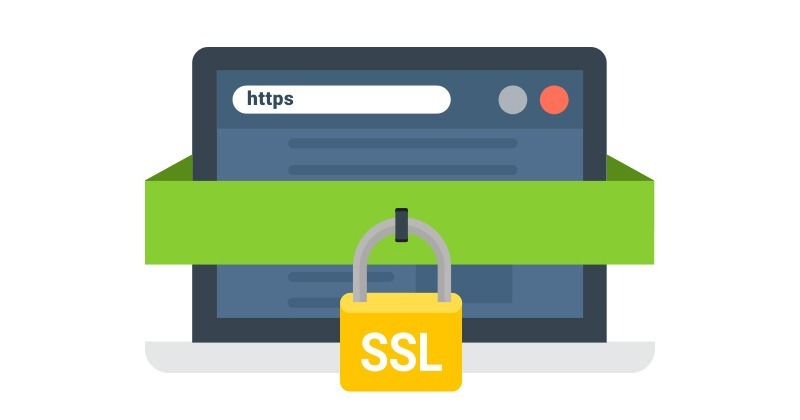All About SSL, TLS and HTTPS | Installation Guide To Website Security

Data espionage and misuse are a serious problem for both international authorities and private end-users. The topic of Internet security is becoming elemental for companies. Digitization is not only expanding in the private sector but also in the public sector, everything is increasingly digitized. SSL and HTTPS are part of today’s standard security so that the company’s internal data, customer data, and other sensitive information can be securely transmitted and managed.
Many of you might have some across the red page that appears as YOUR CONNECTION IS NOT PRIVATE on your website. Why does it appear? What exactly do these abbreviations mean and how can you implement the security protocols for your website? We will try and resolve one of the most asked queries about website security ’MY WEBSITE IS NOT SECURE’.
WHAT IS SSL?
SSLC full form: SECURE SOCKETS LAYER CERTIFICATE ; SSL is describes a technology that is used to encrypt and authenticate data traffic on the network. In the case of websites, this ensures secure transmission of data between browser and web server.
Sensitive data that is protected by SSL encryption is:
1.. Registration data: name, address, email address, telephone number
2. Log-in Data: email address and password
3. Payment information: credit card number, bank details
4. Entry forms
5. Documents uploaded by the customer
With SSL, you ensure that the communication cannot be read or manipulated by any third party and that personal data does not fall into the wrong hands.
WHAT IS HTTPS?
Full Form Of HTTPS: HYPERTEXT TRANSFER PROTOCOL SECURE; HTTPS is the protocol for secure data transmission. HTTP denotes the unsecured variant. In the case of HTTP websites, transmitted data can be read or modified by attackers.
HTTPS or SSL encrypts the HTTP data and ensures the authenticity of the requests. This works via the SSL certificate or the latest version TLS certificate. Experts now only recommend the use of TLS so when the SSL is mentioned, most people mean TLS.

Benefits of SSL/TLS and HTTPS
1. Data protection and security for customers and partners
2. The risk of data theft and misuse is reduced
3. positive ranking factor for Google
4. Allows HTTP / 2 to be used to improve website performance
5. The certificate is easily recognizable for users and inspires trust
TYPES OF CERTIFICATES IN SSL
Different types of certificates differ in the scope of identification.
1. Certificates with domain validation (DV) – Basic
2. Certificates with owner validation (OV) – More Secure
3. Certificates with Extended Validation (EV) – the Highest level of Authentication
You can choose the type of certificate you require for your website according to the type of business on the website.
If your website is a basic information site, you can install the DV certificate and if your website collects general information from the user, the OV certificate would be sufficient.
But if you collect credit card information or other sensitive data through your website, you would need to install the EV certificate that provides the highest level of security.
Suggested Read: Tips To Drive More Traffic To Your Website
GUIDE TO SSL INSTALLATION
The next step is to install the SSL certificate on the server. You can usually apply for the corresponding certificate directly through the hosting service provider, and the provider will get it on your behalf. Certificate providers provide the corresponding installation instructions. For a technically flawless implementation, the following points are particularly important:
1. Correct Certificates
2. Correct Encryption
3. Suitable Server Configuration
HOW TO CHECK IF THE SSL CERTIFICATE IS PROPERLY INSTALLED
If you visit a website that is encrypted with a valid SSL certificate, you will notice an ‘s’ after ‘http’ in the URL:
https : //www.yourwebsitedomain.com
The ‘s’ in the HTTP protocol of the URL stands for ‘SECURE’ and indicates that this page is successfully encrypted with an SSL certificate.
Google wants to make the web more secure and get website operators to encrypt your pages without exception. According to official statements, pages without encryption will in future be given a red ‘ X ’ in the Chrome browser. HTTPS sites already suggest quality and seriousness because people can easily recognize whether a website is safe or unsafe.






